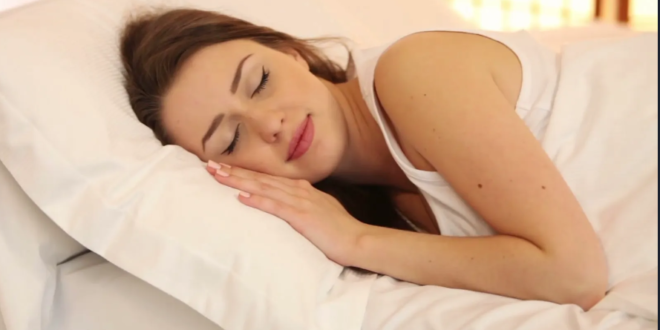Sleep is essential for our health, yet many individuals struggle to get a restful night’s sleep. Two of the most common sleep disorders are insomnia and sleep apnea. While they may seem similar because they both disrupt sleep, they have distinct causes, symptoms, and treatments. Understanding these differences is crucial for anyone looking to improve their sleep quality. This guide will break down the key differences between insomnia and sleep apnea, providing insights that may help you determine which condition you or a loved one might be facing.
Understanding Insomnia
What Is Insomnia?
Insomnia is a sleep disorder characterized by difficulty falling asleep, staying asleep, or waking up too early and not being able to go back to sleep. It is often accompanied by daytime fatigue, mood disturbances, and a decrease in overall well-being. Insomnia can be acute (short-term) or chronic (long-term), with the latter lasting for more than three months.
Causes of Insomnia
Insomnia can stem from a variety of factors, including stress, anxiety, depression, poor sleep habits, or certain medications. Environmental factors such as noise, light, or an uncomfortable sleep environment can also contribute to insomnia. Sometimes, lifestyle choices like irregular sleep schedules, excessive use of caffeine, or lack of physical activity can trigger or exacerbate insomnia.
Symptoms of Insomnia
People with insomnia may experience:
- Difficulty falling asleep
- Frequent awakenings during the night
- Waking up too early
- Feeling tired upon waking
- Daytime sleepiness
- Irritability, depression, or anxiety
- Problems with concentration or memory
When to Seek Help for Insomnia
If insomnia persists for more than a few weeks or if it significantly impacts daily life, it’s important to seek professional help. Vector Sleep Diagnostic Center in Rego Park, NY, specializes in diagnosing and treating sleep disorders, including insomnia. They offer comprehensive evaluations to help you find the root cause of your sleep issues. To book an appointment, call 718-830-2800.
Exploring Sleep Apnea
What Is Sleep Apnea?
Sleep apnea is a potentially serious sleep disorder in which breathing repeatedly stops and starts during sleep. These pauses in breathing can last from a few seconds to minutes and can occur 30 times or more per hour. Sleep apnea is categorized into three types: obstructive sleep apnea (OSA), central sleep apnea, and complex sleep apnea syndrome.
Causes of Sleep Apnea
Obstructive sleep apnea, the most common type, occurs when the muscles in the back of the throat relax excessively, causing a blockage of the airway. Central sleep apnea is less common and happens when the brain fails to send proper signals to the muscles that control breathing. Factors that increase the risk of sleep apnea include obesity, a narrow airway, chronic nasal congestion, smoking, and a family history of the condition.
Symptoms of Sleep Apnea
Common signs of sleep apnea include:
- Loud snoring
- Episodes of stopped breathing during sleep
- Gasping for air during sleep
- Waking up with a dry mouth or sore throat
- Morning headaches
- Difficulty staying asleep (insomnia)
- Excessive daytime sleepiness
- Irritability and mood changes
When to Seek Help for Sleep Apnea
Sleep apnea can have serious health consequences if left untreated, including high blood pressure, heart disease, stroke, diabetes, and even sudden death during sleep. If you or a loved one is experiencing symptoms of sleep apnea, it is crucial to seek medical advice. They in Rego Park, NY, offer advanced diagnostic tests, such as polysomnography, to accurately diagnose sleep apnea and tailor a treatment plan for you. To learn more or to schedule a consultation, call 718-830-2800.
Insomnia vs. Sleep Apnea: Key Differences
The Main Differences
While both insomnia and sleep apnea result in poor sleep quality, they differ significantly in their causes and symptoms. Insomnia is primarily characterized by an inability to fall or stay asleep, often due to psychological or environmental factors. In contrast, sleep apnea involves physical interruptions in breathing that disrupt sleep, leading to fragmented and non-restorative sleep.
Diagnosis and Treatment Approaches
Diagnosis of these sleep disorders also differs. Insomnia is typically diagnosed based on a patient’s sleep history and any underlying psychological or medical conditions. On the other hand, sleep apnea requires a more in-depth diagnostic approach, often involving sleep studies like those offered them in Rego Park, NY.
Treatment for insomnia often includes cognitive-behavioral therapy for insomnia (CBT-I), lifestyle changes, and sometimes medication. Sleep apnea treatment may involve continuous positive airway pressure (CPAP) therapy, oral appliances, or surgery, depending on the severity of the condition.
Why Accurate Diagnosis Matters
Properly distinguishing between insomnia and sleep apnea is vital because the treatment approaches differ significantly. Misdiagnosing one condition as the other could lead to ineffective treatment and prolonged suffering. For example, if someone with sleep apnea is treated solely for insomnia, the underlying cause of their sleep disruption will not be addressed, potentially leading to severe health complications.
The Role of Vector Sleep Diagnostic Center
In Rego Park, NY, a team of sleep specialists is dedicated to providing accurate diagnoses and effective treatments for various sleep disorders, including insomnia and sleep apnea. They use state-of-the-art technology to ensure that each patient receives a tailored treatment plan that addresses their specific needs.
To take the first step towards better sleep, contact them at 718-830-2800.
FAQs
What are the long-term effects of untreated insomnia?
Untreated insomnia can lead to a host of long-term health issues, including chronic fatigue, impaired cognitive function, depression, anxiety, and an increased risk of heart disease and diabetes.
Can insomnia turn into sleep apnea?
While insomnia and sleep apnea are distinct conditions, they can coexist. However, insomnia does not cause sleep apnea. It’s essential to get a proper diagnosis to address each condition appropriately.
Is insomnia more common than sleep apnea?
Yes, insomnia is more common, especially in the short-term form. However, both conditions are prevalent and can significantly impact health and quality of life if not treated.
What lifestyle changes can help with insomnia?
Lifestyle changes such as maintaining a regular sleep schedule, reducing caffeine and alcohol intake, and creating a comfortable sleep environment can help manage insomnia. Additionally, cognitive-behavioral therapy for insomnia (CBT-I) is highly effective.
Conclusion
Insomnia and sleep apnea are two common sleep disorders that can significantly affect your quality of life. Understanding the differences between them is crucial for effective treatment. If you are struggling with symptoms of either condition, consider reaching out to Vector Sleep Diagnostic Center in Rego Park, NY, for a comprehensive evaluation and personalized treatment plan. Better sleep is within reach—call 718-830-2800 today to start your journey to improved health and well-being.
 Personal Finance and Attractive Interest Rates Unlock Smart Savings with Low Rates and Expert Financial Tips
Personal Finance and Attractive Interest Rates Unlock Smart Savings with Low Rates and Expert Financial Tips







